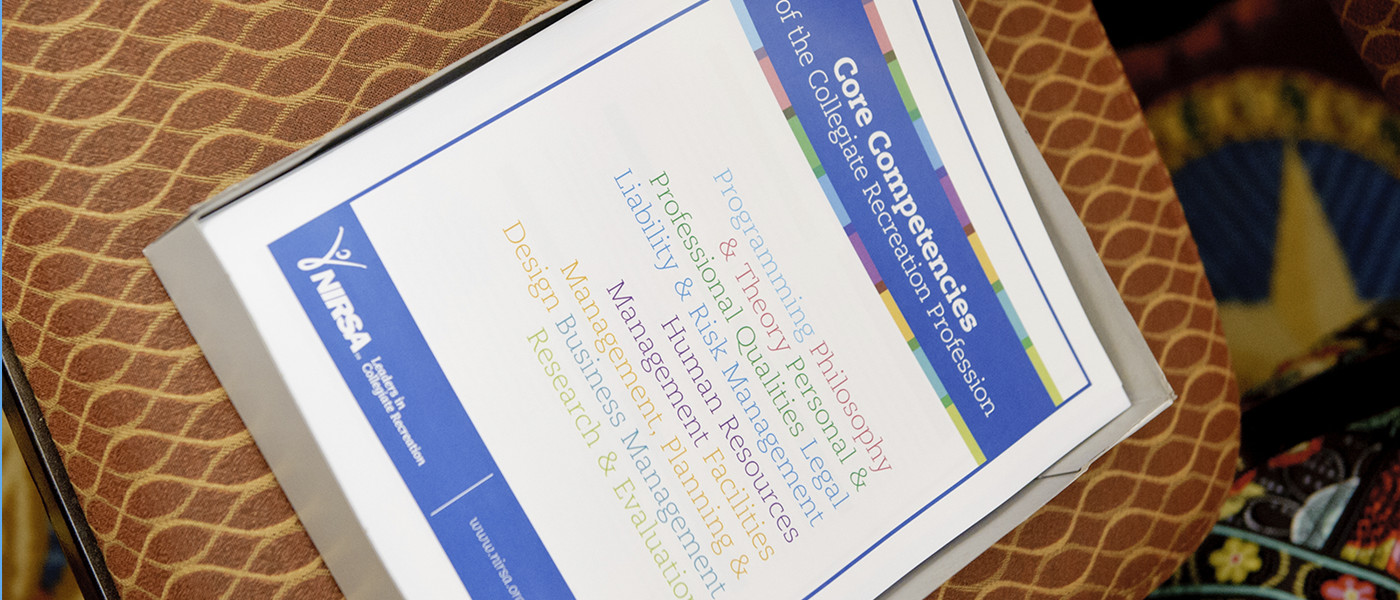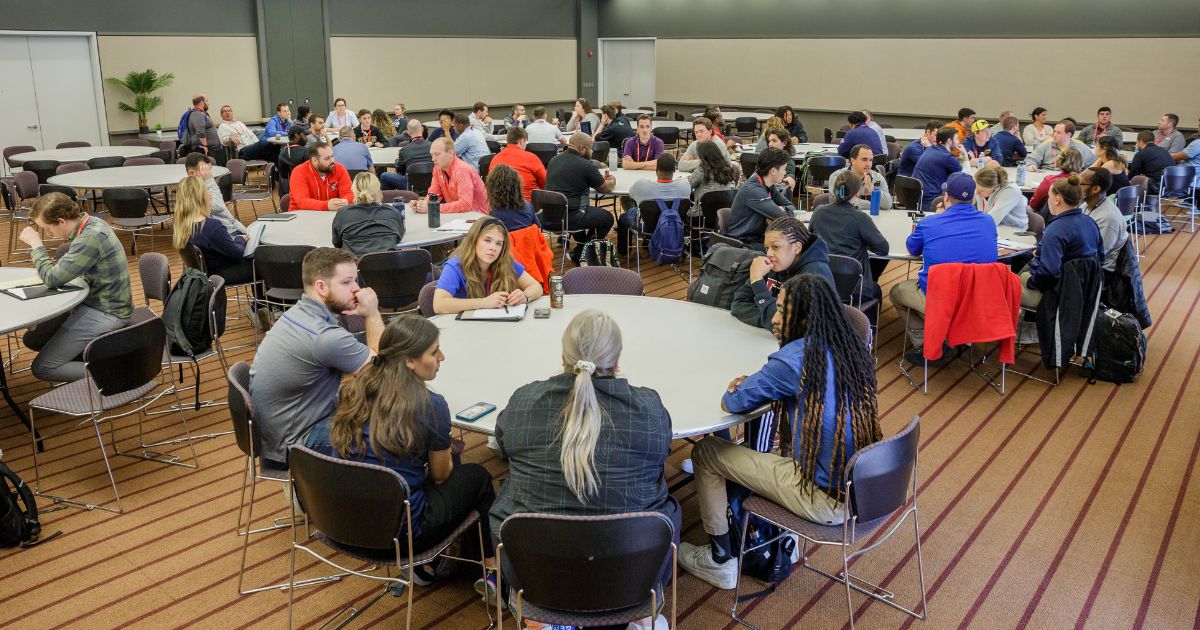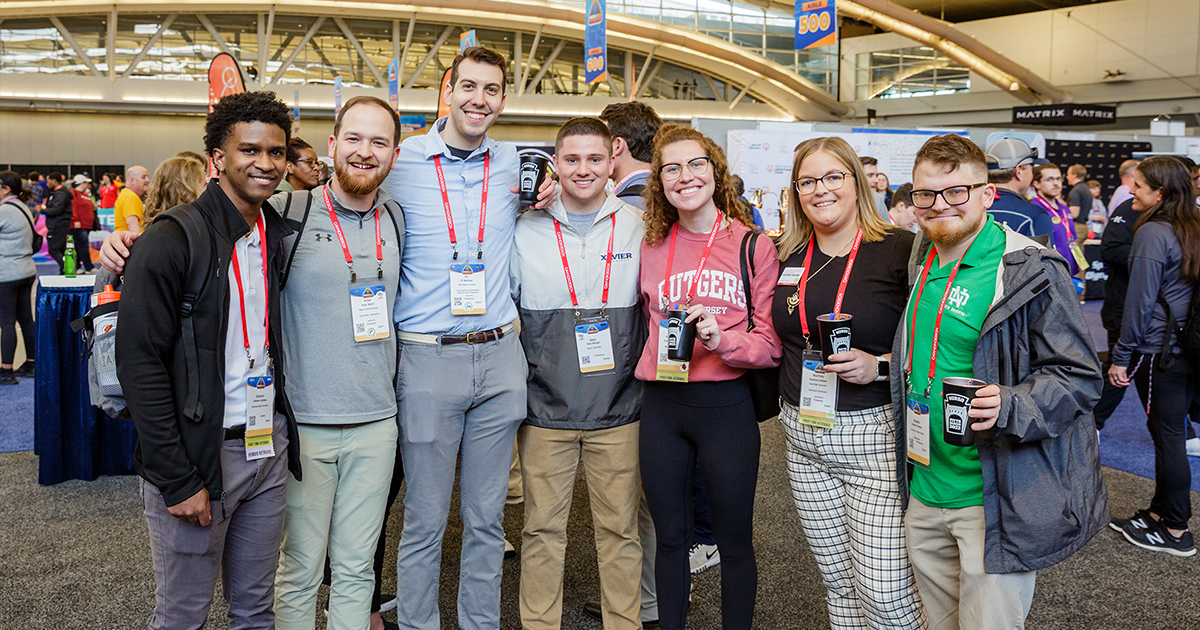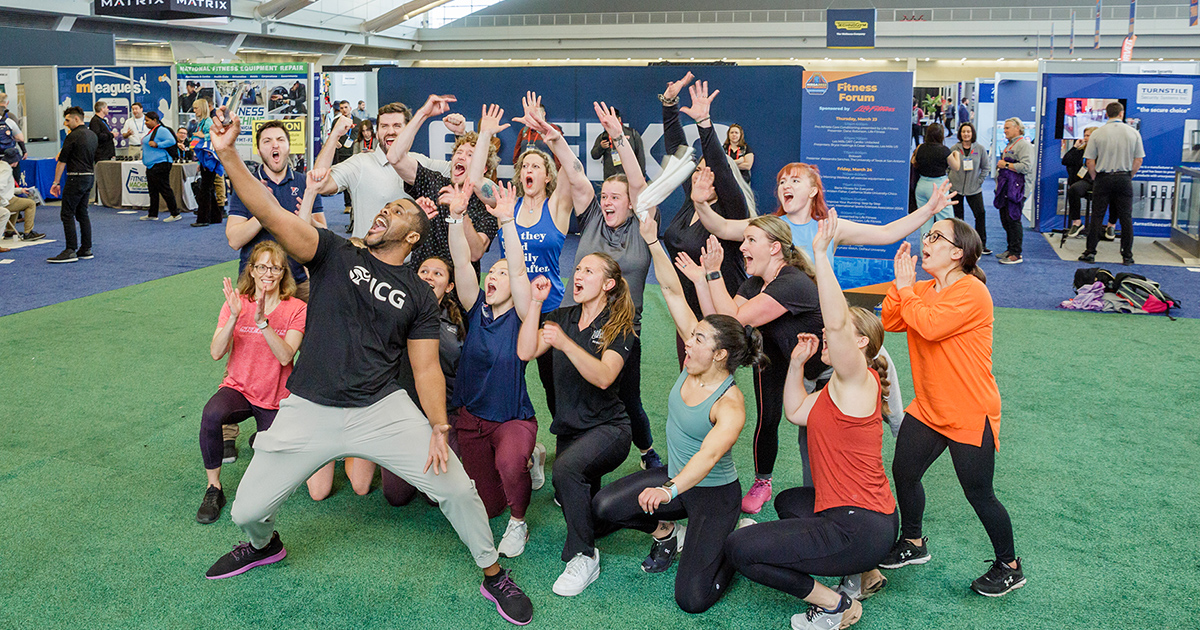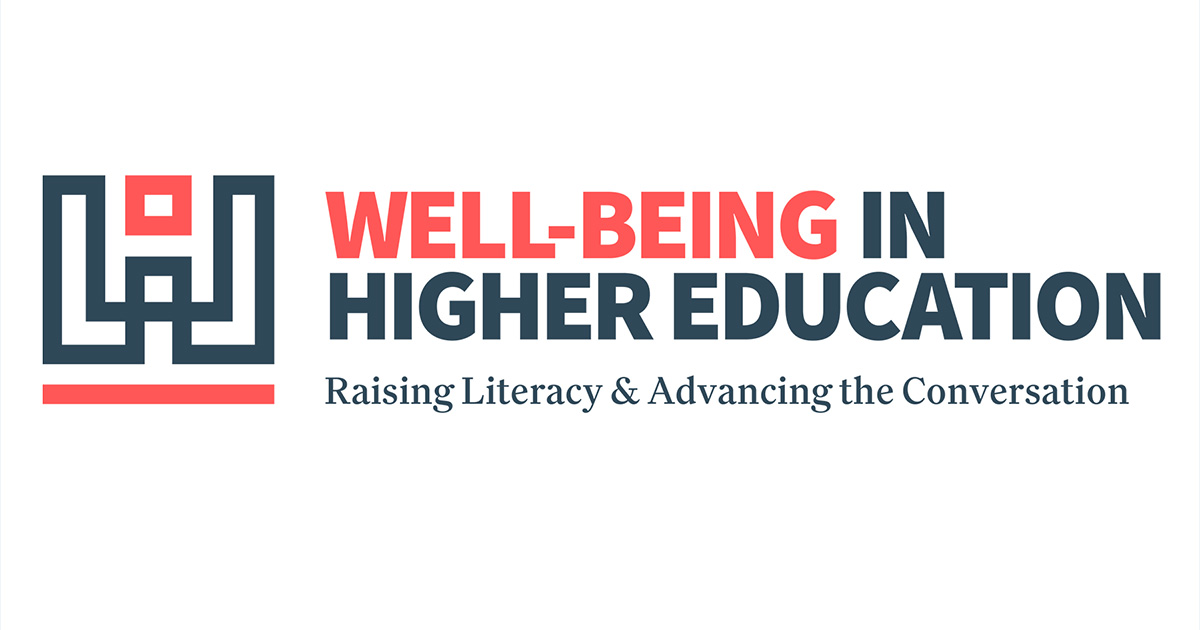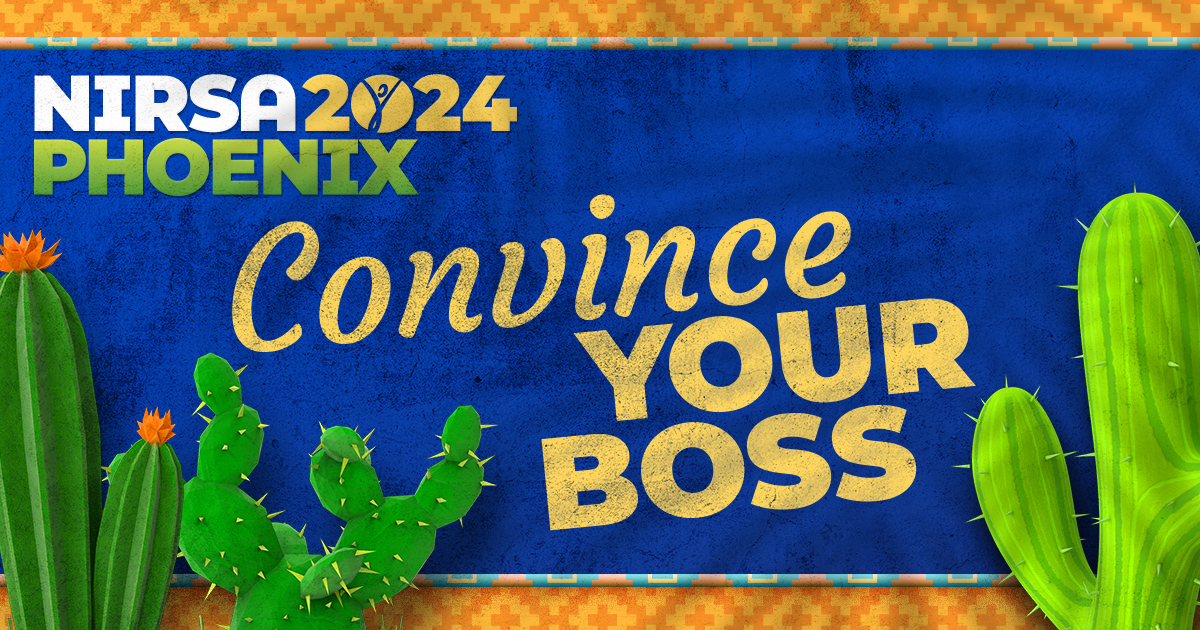By Jacqueline Hamilton, Ed.D. and Jennifer Puhl Winkler, Wellness Center Director at the University of North Dakota
Many of us have drawn participants into our programs through the promise of free food—and we’re glad we could catch your attention with a similar tactic. After all, NIRSA resources are very valuable and we want you to know about them!
As leaders in collegiate recreation, we need to keep ourselves relevant so we can best deliver quality programs and services. The resources we’ll highlight in this article will help determine how we, as rec professionals, are performing and how we can be intentional about developing for the future.
NIRSA rolled out the initial core competencies for leaders in collegiate recreation back in 2009. Since then, the Association has worked hard to make them better by evolving the framework to include proficiency levels. Currently, the design and development of an assessment tool to accompany those existing resources is also underway. These resources will be able to assist individuals in the collegiate recreation field in a number of ways, and have intentionally been developed as electronic so they can be updated readily to remain relevant as higher education and the world at large changes rapidly.
Who are these resources for?
Anyone in the collegiate recreation profession can use these resources to self-evaluate their competency levels. Alongside their supervisors, employees can assess if they’re prepared for an advanced position or to identify areas for professional development. Mentors can use the resources to help mentees self-assess and decide on professional development options.
Students can use the core competencies and proficiency levels to help them describe how the skills they’ve learned through their work in recreation directly relate to positions in other fields. For employers, these resources are great for organizational and position planning, in performance appraisals, and for assessing how prepared a candidate or applicant is for a position. If you’re either a presenter or a host of a NIRSA professional development event, they can help communicate to attendees aspects about educational content. Registry members—and those considering the RCRSP designation—can use these resources to find clear examples of how the professional competencies are applied in the daily work of collegiate recreation professionals.
These fundamental resources have been in the making for years. With ongoing refinement and development, we envision that these tools can be used to support members in the application of the core competencies and proficiency levels. We believe that they will be more and more useful to individuals and the profession as NIRSA members become better acquainted with them. Through beta testing, institutions are already exploring different creative applications for them.
NIRSA’s core competencies.
NIRSA core competencies are a result of a proposal by the Registry of Collegiate Recreational Sports Professionals, the group of NIRSA professionals who manage the policies, standards and other criteria vital to the designation of RCRSP. Members of the Professional Registry Commission are charged with regularly reviewing the core competencies and determining if changes or updates are necessary.
In the early 2000s, members of the Professional Registry Commission started discussing core knowledge that is essential to both professional development and Association recognition. The following timeline explains the birth of both the Registry of Collegiate Recreational Sports as well as NIRSA’s core competencies:
- 2004: “An Analysis of the Perceived Competencies of Recreational Sport Administrators” by Bob Barcelona and Craig M. Ross was published in the Journal of Park and Recreation Administration
- 2009: The Validation of the Collegiate Recreational Sports Core Competencies Using Delphi Methodology report confirmed eight competency areas for collegiate recreation professionals which became the NIRSA core competencies
- 2011: NIRSA’s Registry of Collegiate Recreational Sports Professionals was launched
- 2013: NIRSA’s Education Content Review Team proposed developing basic, intermediate, and advanced-level descriptions of the core competencies to the NIRSA Board or Directors
- 2014: NIRSA’s Education Task Force developed draft descriptions and levels for the core competencies that they then distributed by competency areas to professionals throughout the field as well as to the Professional Registry Commission for review; an outside consultant also reviewed examples of the competency levels
- 2015: Design and development of the assessment tool remains in progress
Special thanks to NIRSA’s Education Task Force for their intense work over the past several years to bring this project to fruition: David DeAngelo of The Ohio State University, Wallace Eddy of the University of Maryland – College Park, Jacqueline Hamilton, Ed.D., Sarah Hardin of Centers, LLC at DePaul University, Cheri Hawkins of NIRSA Headquarters, Jennifer Speer of The University of Texas at Austin, Julie Wallace-Carr of James Madison University, and Michael Weinberger of the University of California-Berkeley.
You and the core competencies
Feedback from NIRSA’s membership is crucial to integrating the core competencies into the landscape of the profession. Please take the time to introduce the core competencies—particularly with the newly-added levels of proficiency—to your coworkers. If you‘re interested in serving as a member of the NIRSA Professional Registry Commission, keep an eye on the NIRSA News for updates about submitting an application. The application period will launch in January and close in April.
For more information about NIRSA’s core competencies—or if you have questions, concerns, or suggestions about the Registry of Collegiate Recreational Sports Professionals—please contact a Professional Registry Commissioner.

